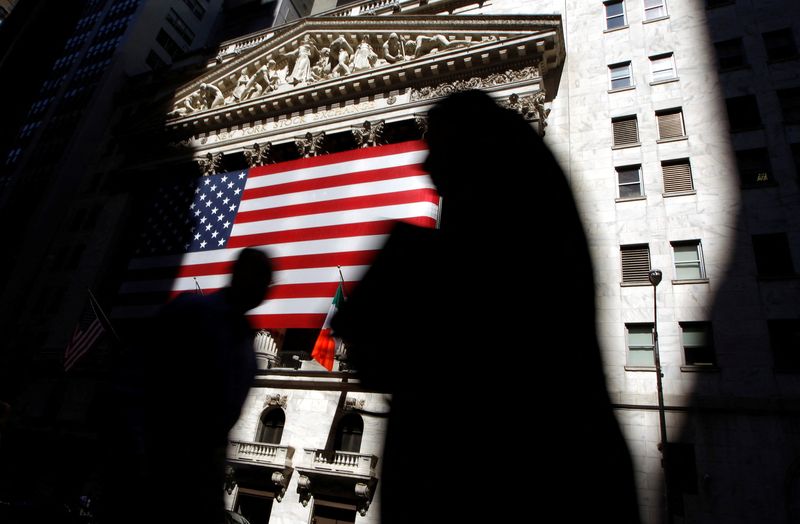By Noreen Burke
Investing.com -- U.S. stocks are seen opening broadly lower on Tuesday, a day after the Nasdaq recorded its lowest close since July 2020, pressured lower by persistent worries over the impact of rising interest rates.
At 07:05 ET (11:05 GMT), the Dow futures contract was down 193 points, or 0.6%, S&P 500 futures traded 26 points, or 0.7% lower and Nasdaq 100 futures shed 73 points, or 0.7%.
The main equity indices closed sharply lower Monday, with the Nasdaq ending down 1.04%. The Dow Jones Industrial Average was off 0.3%, while the S&P 500 declined about 0.8%.
Investors remained cautious ahead of what will be closely watched inflation data later in the week as well as the start of third quarter earnings season on Friday, when the largest U.S. lenders are due to report.
Analysts expect the bank results to show a slide in net income after market volatility hit investment banking activity and lenders set aside more rainy-day funds to cover losses from borrowers who fall behind on their payments.
Banks typically earn more when interest rates rise because they can charge customers more to borrow, but higher borrowing costs also impact on demand for mortgages and other loans.
The U.S. is to release the consumer price index report for September on Thursday followed by retail sales figures, also for last month, on Friday.
Recent comments by Federal Reserve officials have indicated that turbulence in financial markets would not deter them from acting to lower inflation.
Investors are worried that the Fed’s efforts to tackle inflation with jumbo-sized rate hikes could tip the economy into recession.
JPMorgan Chase Chief Executive Jamie Dimon said the United States and the global economy could tip into a recession by the middle of the next year.
"These are very, very serious things which I think are likely to push the U.S. and the world — I mean, Europe is already in recession — and they're likely to put the U.S. in some kind of recession six to nine months from now," Dimon said in an interview with CNBC.
In commodity markets oil prices slid around 2%, adding to losses in the previous session as concerns over the demand outlook weighed.
U.S. crude futures traded 2.3% lower at $88.95 a barrel, while the Brent contract was down 2.08% to $94.20. Elsewhere, gold futures were little changed at $1,674.35/oz, while EUR/USD traded 0.2% higher at 0.9721.
